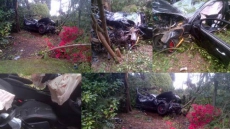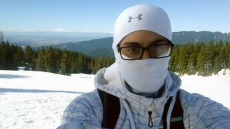VANCOUVER — More flights have been cancelled after a cloud of ash spewed from a volcano on the Alaska Peninsula.
WestJet spokeswoman Lauren Stewart said the airline cancelled three flights from Regina on Wednesday morning and three flights out of the city Tuesday night after the Pavlof Volcano erupted Sunday, creating an 11,000-metre plume.
Stewart said customers should check the status of their flight before leaving for the airport.
First Air also issued a travel advisory Wednesday, saying two flights to and from Yellowknife had been cancelled and 12 flights, including one to Edmonton, had been rescheduled.
Geologist Chris Waythomas of the Alaska Volcano Observatory said satellite images don't indicate any problems but it's up to airlines to decide whether to fly.
"It's not always easy to get an estimate from a satellite image of what the concentration (of ash) might be so to err on the safe side, I think they just don't fly."
He said volcanic ash can melt and adhere to a jet's turbine blades and stop engines.
"Ash is fairly abrasive so the leading edges of the aircraft and the windows can be affected by flying through ash."
Waythomas said a fully loaded jetliner flew into an ash cloud on its way to Anchorage in December 1989 during an eruption of Redoubt Volcano in Alaska.

"All four engines stopped and it looked like the plane was going to crash. Fortunately they got things started and it was able to land but it severely damaged the aircraft," he said from Anchorage.
Waythomas said Pavlof is likely the most active volcano in North America and has erupted over 40 times in recent decades.
"It's a little more energetic than some of the last few, probably since the 1996 eruption because of the height of the ash cloud."
Geologists are hoping to determine the amount of ash that has fallen from Pavlof in the next couple of weeks, depending on the weather and the state of the volcano.





